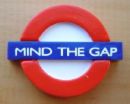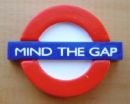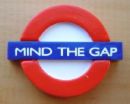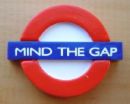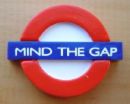 Strong Buy, Simplistic but Focused,
Strong Buy, Simplistic but Focused,
May 20, 2007
Kenneth J. Hagan
I think enough of this book by Hagan and Bickerton, both, significantly, respected professors in the US military war college system, to recommend it very strongly. It is simplistic, but in combination with the books I list below, it is quite striking.
Key points:
1. Wars have consequences, not only in the defeated region, but within the USA where the national and regional cultures (Nine Nations) can be conflicted.
2. War *alters* policy for all future generations.
3. America's wars have been engines of economic growth, but the authors fail to observe that the rich benefit while the poor die.
4. The post-war period is a continuation of the war and cannot be ignored. Both explicitly and implicitly, they crucify Cheney, Rumsfeld, Wolfowitz, and Feith.
5. In every single case, the outcome of the war has been “far removed” from the stated objectives.
6. Each war brings with it repressive measures against those who dissent. I am reminded of Valley Girl Condi Rice suggesting that General Tony Zinni was a “traitor” for saying the idea of invading Iraq was idiocy. How now, cow?
7. War tends to loosen the bonds of traditional authority and undermine community.
8. Across our history, not just at our inception, Native Americans have lost big. Genocide was not only perpetuated in the wars of independence, but after the Civil War, when the US Army practices scorched earth war.
9. The most importance consequence of the war of 1812 was it total lack of achievement of ANY of its goals, together with an accentuation of sectional differences within the USA.
10. On page 47: “Enhanced chauvinism, ambitious jingoism, and patriotism [per Samuel Johnson, the last refuge of the scoundrel] were unintended consequences of the war. The slave trade continued.
11. The Indian Wars were deliberately genocidal.
12. In general, in its first hundred years, the USA was a belligerent against Canada, Mexico, and the Indian Nations.
13. The war on Mexico caused long-term host8ility and led to the civil war by aggravating differences between North and South (and one might add, Texas as the largest ego in the West). The war on Mexico was mostly fought and led by the South.
14. The Civil War was America's first ideological war.
15. The Emancipation Proclamation applied only to slaves in hostile states, not to Northern states.
16. Civil War extended the power of the Federal Government, which increasingly sold the American people out to special interests including European banks.
17. The authors provide a *fascinating* description of Abraham Lincoln's unprecedented abuse of presidential powers, including the suspension of habeas corpus, and I can now understand why “W” thinks he is following greatness by turning America into a police state.
18. Civil War introduced total annihilation (scorched earth) as an American “war of war.”
19. Spanish-American-Cuban-Filipino war is, in the author's view, most similar to the Iraq war in terms of the mendacity preceding and the insurrections following.
20. WWI, WWII, and the Cold War are discussed in terms that show the US to have been the more belligerent. Stalin learned not to trust the US, and this led to the ideological stand-off and the emergency of “fantasy war.”
21. In Korea, General McArthur exceeded his authority, the Chinese warned the US via an Indian who was blown off, and the game was on.
22. The US concurrence in the restoration of the French in Indochina (now Viet-Nam), and the conflicts that Johnson had in having to support being a hawk on Viet-Nam in order to have his “Great Society,” are covered.
23. The authors are *brutal* on the Bush Family, to the point that one is inspired to think of a lunatic asylum as the natural resting place for the whole lot of them.
24. According to the authors, Iraq is a “phony war” in every sense of the word except the casualties.
25. Iran is not in the index but the authors observe that US pressure on Syria to withdraw from Lebanon opened the door for Iran.
Bottom line: going to war does not solve problems, it creates more of them. The authors conclude that war is both folly and futile. I agree.
All Americans have a choice in 2008: they can continue business as usual, with the corrupt and inept Republican and Democratic “machines” that are “running on empty” and totally beholden to Wall Street, or Americans can reassert the fact that this is a Republic and the government as a whole can be fired for cause. See the books listed below. May God have mercy on our souls. It's time we started living up to our sacred responsibility as citizen-warriors, as Minutemen.
The authors lose one star to simplicty and an avoidance of both the intelligence availabale but ignored, and lack of couinter-vailing forces (e.g. Congress and the media inevitably fall for the Executive deceptions).
American Fascists: The Christian Right and the War On America
The Nine Nations of North America
None So Blind: A Personal Account of the Intelligence Failure in Vietnam
Running on Empty: How the Democratic and Republican Parties Are Bankrupting Our Future and What Americans Can Do About It
The Sorrows of Empire: Militarism, Secrecy, and the End of the Republic (The American Empire Project)
The American Way of War: A History of United States Military Strategy and Policy
The Fifty-Year Wound: How America's Cold War Victory Has Shaped Our World
The Unconquerable World: Power, Nonviolence, and the Will of the People
War Is a Racket: The Anti-War Classic by America's Most Decorated General, Two Other Anti=Interventionist Tracts, and Photographs from the Horror of It
Who the Hell Are We Fighting?: The Story of Sam Adams and the Vietnam Intelligence Wars
 Misses Long-Term, Green, and Bottom of Pyramid, Superb Otherwise
Misses Long-Term, Green, and Bottom of Pyramid, Superb Otherwise



